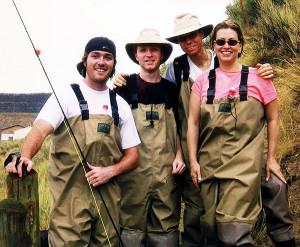How to Raise Confident Kids
What gives them confidence?
A happier life?
A good education?
Parents with money?
Oodles of friends?
Nope. It’s knowing their family history.
In the mid-1990’s two doctors, Duke and Fivush, developed a set of 20 Do you Know questions. Queries like;
- Do you know where your grandparents grew up?
- Do you know where your parents went to high school?
- Do you know where Mom & Dad first met?
- Do you know something good in your family’s past?
- Do you know something bad in your family’s past?
“We were blown away,” Dr. Duke said. Kids who knew more had higher self-esteem and a stronger sense of control over their lives. They were more resilient. They were better able to manage stress.
Kids who knew their family history were happier in life.
Dr. Duke says all families should strive to have a unifying narrative. It can be one of three kinds – ascending, descending or oscillating.
The ascending narrative is a progression of success. It might relate back to great grandparents who came to this country with nothing. Successive generations graduated from high school, then college. Maybe a daughter obtained a PhD, or a son started a successful business. It was all up, up, up.
The descending narrative is a history of starting high but falling low. “Five years ago Son, we had it all, but lost most everything in the last recession.”
The third is the oscillating narrative. This is a family history of ups and downs, of successes and failures. Interestingly, it’s this oscillating narrative that gives kids the most resilience and confidence.
Dr. Duke explains that knowing the family history gives kids a strong “intergenerational self.” They feel part of something bigger.
Want to know more? Our savvy today is from a NY Times article by Bruce Feiler, The Stories That Bind Us (03/15/13). Feiler interviewed successful people from “peace negotiators” to “Warren Buffett’s bankers”. His research mirrored the “Do You Know” findings.
Feiler observed, “The single most important thing you can do for your family may be the simplest of all: develop a strong family narrative.”










